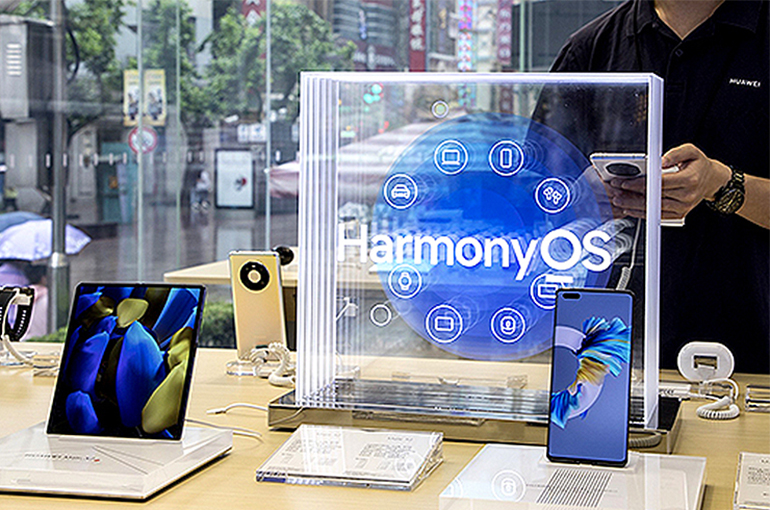 11 More Alibaba Apps Join Hands With Huawei to Create Versions Native to HarmonyOS
11 More Alibaba Apps Join Hands With Huawei to Create Versions Native to HarmonyOS(Yicai) March 15 -- Eleven more apps under Chinese internet giant Alibaba Group Holding have partnered with Huawei to develop versions native to the Chinese telecoms giant’s operating system HarmonyOS Next.
The 11 Alibaba apps joining hands with Huawei are second-hand online marketplace Xianyu, wholesale platform 1688, travel platform Fliggy, takeaway app Ele.me, supermarket chain Freshippo, logistics app Cainiao, livestreaming e-commerce platform Diantao, e-commerce site Taobao Deals, ticketing platforms Damai and Taopiaopaio, and movie data app Beacon Pro.
Alibaba’s online shopping site Taobao, workplace communication and collaboration platform DingTalk, navigation app Amap, and web browser UC Browser joined the HarmonyOS ecosystem in the second half of last year.
On March 13, Alibaba Cloud launched a financial identity verification product for the HarmonyOS that can identify whether the user is a real human with facial recognition technology. It is the first ID verification product applicable to HarmonyOS, Alibaba Cloud told Yicai, adding that many HarmonyOS native apps will rely on it to identify users.
The ID verification product will likely boost the development of HarmonyOS native apps regarding mobile financial information security, an analyst said. However, it is important to not only develop native apps but also hike cooperation with partners in development tools, third-party frameworks, and software development kits, the analyst noted.
Leading apps will migrate from Android to HarmonyOS this year, while secondary apps will take one or two years to migrate, Shengang Securities said in a research report.
The government of Shenzhen, where Huawei is headquartered, put forward a plan on March 2 to support the development of HarmonyOS and improve its ecosystem.
The plan aims to have more than 10 percent of the country’s apps native to HarmonyOS, use HarmonyOS native apps in all vertical fields, have qualified HarmonyOS native app developers accounting for over 15 percent of the country’s total, build more than two industrial parks specialized in HarmonyOS native app development, and have over 1,000 software companies with the qualifications to develop HarmonyOS native apps by the end of this year.
Editor: Futura Costaglione